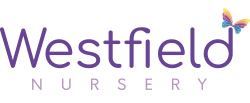Understanding the Early Years Foundation Stage
Importance of EYFS Framework
The EYFS framework is crucial for early childhood education, setting standards for children up to five years old. It ensures a comprehensive approach to learning and development, focusing on various aspects like social skills, communication, physical well-being, and cognitive growth. This framework provides a solid foundation for children’s future educational journey.
The EYFS nurseries and preschools in the UAE strictly adhere to this framework to offer quality education that caters to the holistic development of young learners. By following the EYFS guidelines, these educational institutions create an environment where children can thrive and reach their full potential through structured learning experiences tailored to their age group.
One of the key benefits of implementing the EYFS curriculum is its emphasis on play-based learning. This approach recognizes that young children learn best through hands-on experiences and exploration. By integrating play into educational activities, nurseries and preschools can make learning enjoyable while fostering creativity, problem-solving skills, and social interactions among children.
Involvement of Parents in EYFS
In addition to educators’ role in a child’s development journey within the EYFS framework, parents also play a vital part in supporting their child’s learning progress. The EYFS acknowledges that parents are a child’s first teachers and encourages active involvement from families in shaping their child’s early years’ education.
Parents can engage with their child’s nursery or preschool by participating in parent-teacher meetings, staying informed about their child’s progress through regular updates from educators, and creating a conducive home environment that complements what is being taught at school. Collaboration between parents and teachers enhances continuity in a child’s learning experience across different settings.
Moreover,
- Parents have opportunities to extend their child’s learning beyond school hours by incorporating educational activities at home.
- Regular communication channels between educators and parents facilitate sharing insights about each child’s strengths, areas for improvement, and developmental milestones.
- When both educators at nurseries/preschools follow the same principles as parents at home based on EYFS guidelines, children benefit from consistent support systems promoting overall growth.
Key Learning and Development Requirements in EYFS
Communication and Language Skills
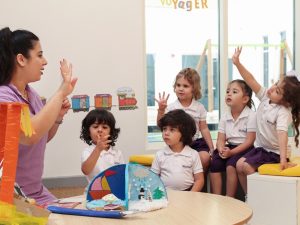 Communication is crucial in the EYFS framework, focusing on listening, speaking, and understanding. Children learn to express themselves verbally, enhancing their social interactions. Through activities like storytelling or show-and-tell, they develop these skills.
Communication is crucial in the EYFS framework, focusing on listening, speaking, and understanding. Children learn to express themselves verbally, enhancing their social interactions. Through activities like storytelling or show-and-tell, they develop these skills.
Children’s language skills are nurtured through daily routines like circle time discussions or reading sessions. They engage in conversations with peers and adults to build vocabulary and communication confidence. Building a strong foundation in language supports future academic success.
Encouraging children to communicate their needs effectively helps them develop essential life skills early on. By fostering an environment where children feel comfortable expressing themselves, nurseries can support their language development effectively.
Physical Development
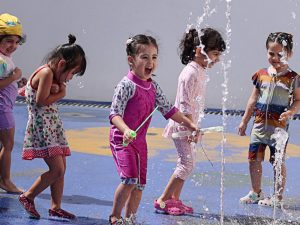 In nurseries following the EYFS curriculum, physical development involves activities that promote movement coordination. Play areas are designed to encourage running, jumping, climbing, and balancing exercises for motor skill enhancement.
In nurseries following the EYFS curriculum, physical development involves activities that promote movement coordination. Play areas are designed to encourage running, jumping, climbing, and balancing exercises for motor skill enhancement.
Outdoor playtime is vital for physical growth as children engage in various activities like ball games or cycling. These experiences help improve muscle strength and overall health while also promoting teamwork through group sports.
By incorporating structured physical activities into the daily routine of preschools adhering to the EYFS guidelines, educators ensure that children achieve developmental milestones related to coordination and movement control efficiently.
Personal, Social, and Emotional Development
Fostering personal growth includes helping children understand emotions such as empathy towards others’ feelings or managing frustration constructively. Nurseries focus on creating a supportive environment where each child feels valued.
Social interactions within group settings allow children to learn cooperation skills by sharing toys or taking turns during playtime activities. This helps them cultivate positive relationships with peers from an early age.
Emotional well-being is prioritized in preschools following the EYFS framework by providing a nurturing atmosphere where emotional expression is encouraged without judgment.
Literacy and Mathematics
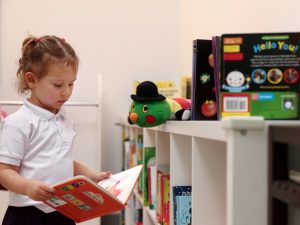 Literacy forms a core part of the educational journey within nurseries aligned with the EYFS standards; it encompasses reading comprehension abilities alongside writing proficiency development.
Literacy forms a core part of the educational journey within nurseries aligned with the EYFS standards; it encompasses reading comprehension abilities alongside writing proficiency development.
Activities like story sequencing or letter recognition games enhance literacy skills progressively as per each child’s learning pace.
Mathematics instruction focuses on introducing basic concepts such as counting objects or recognizing shapes at an age-appropriate level.
Understanding the World
Exploring one’s surroundings plays a significant role in early childhood education under the EYFS curriculum guidelines; this allows children to investigate nature elements around them.
Nurseries often organize field trips to parks or museums for hands-on learning experiences about different cultures or environments.
Statutory Framework of EYFS for England
Department Regulation
The EYFS framework in England is overseen by the Department for Education. It ensures that early education provision meets high-quality standards and legal requirements.
The Department for Education regulates the EYFS to guarantee that nurseries and preschools adhere to specific guidelines, promoting a consistent level of care and education.
In the UAE, nurseries and preschools also follow an adapted version of the EYFS curriculum, aligning with international best practices in early childhood education.
High-Quality Provision
One of the main objectives of the EYFS framework is to ensure that children receive high-quality early education. This includes focusing on various aspects such as communication, physical development, literacy, mathematics, understanding the world, expressive arts and design.
By following this framework, nurseries can create a structured environment where children can learn through play and exploration while developing essential skills for their future learning journey.
Nurseries implementing the EYFS principles provide a holistic approach to child development by considering individual needs and interests when planning activities and assessing progress.
Equality Promotion
Promoting equality is a key component of the EYFS framework, aiming to provide all children with equal opportunities regardless of their background or circumstances.
Nurseries following this framework strive to create an inclusive environment where every child feels valued and supported in their learning journey. By embracing diversity within their settings, they foster respect among children from an early age.
Incorporating diverse books, toys representing different cultures, languages lessons are ways nurseries can promote equality according to EYFS guidelines.
Exploring Areas of Learning in EYFS
Communication and Language Development
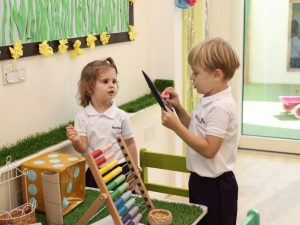 EYFS nurseries and preschools play a crucial role in fostering communication and language development. Children are encouraged to express themselves verbally, listen actively, and engage in conversations. Through activities like storytelling, singing songs, or engaging in group discussions, young learners develop essential communication skills.
EYFS nurseries and preschools play a crucial role in fostering communication and language development. Children are encouraged to express themselves verbally, listen actively, and engage in conversations. Through activities like storytelling, singing songs, or engaging in group discussions, young learners develop essential communication skills.
In these educational settings, children also learn the importance of non-verbal communication through gestures, facial expressions, and body language. By interacting with their peers and educators regularly, they enhance their ability to convey thoughts effectively. This foundational skill not only aids in academic success but also supports social interactions later on.
Encouraging children to communicate confidently helps build self-esteem from an early age. When kids feel comfortable expressing themselves both verbally and non-verbally within the EYFS framework, they are more likely to participate actively in various learning experiences.
Physical Development
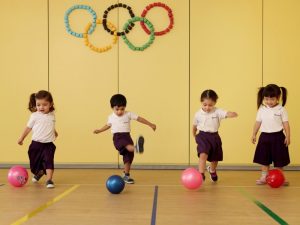 Within the EYFS UAE curriculum, physical development encompasses both gross motor skills (like running or jumping) and fine motor skills (such as drawing or using scissors). Nurseries and preschools provide ample opportunities for children to engage in activities that promote physical well-being.
Within the EYFS UAE curriculum, physical development encompasses both gross motor skills (like running or jumping) and fine motor skills (such as drawing or using scissors). Nurseries and preschools provide ample opportunities for children to engage in activities that promote physical well-being.
Through outdoor playtime, structured exercises, dance sessions, or art projects involving cutting paper or manipulating small objects like beads, young learners enhance their coordination and dexterity. These activities not only support physical health but also contribute to overall cognitive development.
Developing strong gross motor skills allows children to navigate their environment confidently while refining fine motor abilities paves the way for tasks like writing neatly or tying shoelaces independently. The integration of such activities into daily routines within the EYFS framework ensures a holistic approach towards nurturing each child’s physical capabilities.
Expressive Arts and Design
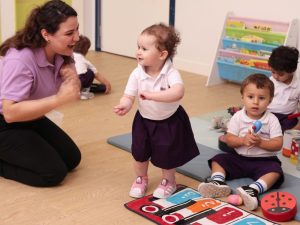 Expressive arts form a vital part of the EYFS curriculum as they encourage creativity among young learners attending nurseries or preschools. Engaging in activities like painting, sculpting with clay, dancing creatively to music tunes fosters self-expression through various artistic mediums.
Expressive arts form a vital part of the EYFS curriculum as they encourage creativity among young learners attending nurseries or preschools. Engaging in activities like painting, sculpting with clay, dancing creatively to music tunes fosters self-expression through various artistic mediums.
Importance of Assessments in EYFS
Tracking Progress and Achievements
EYFS nurseries and preschools employ assessments to monitor children’s development. These evaluations track progress, ensuring each child reaches their milestones. By observing how a child interacts with others or engages in activities, educators gain insights into their growth.
Assessments help educators identify areas where a child excels and where they may need additional support. For instance, through observations during playtime, teachers can pinpoint if a child struggles with social interactions or language development. This allows for tailored interventions to enhance the child’s learning experience.
Regular assessments ensure that children are advancing appropriately within the EYFS framework. It enables educators to adjust teaching methods based on individual needs. For example, if an assessment reveals that a child is struggling with numeracy skills but excelling in creative activities, teachers can modify lesson plans accordingly.
Informing Future Planning
By conducting assessments regularly, EYFS nurseries and preschools gather valuable data on each child’s progress over time. This information guides future planning by highlighting areas that require focus or improvement. Educators can use this data to set achievable goals for each child.
Assessments also aid in identifying patterns or trends in children’s learning journeys. If multiple children exhibit similar challenges in certain areas, educators can adapt teaching strategies to address these common issues effectively. This proactive approach ensures that all children receive the necessary support to thrive academically and socially.
Feedback from assessments serves as a roadmap for educators when designing lesson plans and activities tailored to meet individual needs within the EYFS curriculum framework of learning through play-based experiences.
Supporting Parental Engagement
Involving parents in their child’s educational journey is crucial for holistic development under the EYFS UAE curriculum guidelines. Parents appreciate receiving feedback from assessments as it gives them insight into their child’s progress at school. Educators can share observations and recommendations with parents during parent-teacher meetings. Parents who understand their child’s strengths and areas needing improvement are better equipped to support their learning at home.
Future Changes to the EYFS Framework
Research-Based Updates
The EYFS framework undergoes continuous updates driven by research and feedback. These changes aim to improve the quality of education provided in nurseries and preschools. For example, recent updates have focused on enhancing language development activities for young children.
Continuous updates based on research and feedback:
- Ensure that educational practices align with the latest findings.
- Help nurseries and preschools stay current with the best teaching methods.
Potential revisions to streamline assessment processes:
- Streamlining assessments can make it easier for teachers to track children’s progress effectively.
- Simplifying assessment procedures can also reduce the administrative burden on educators.
School Readiness Outcomes
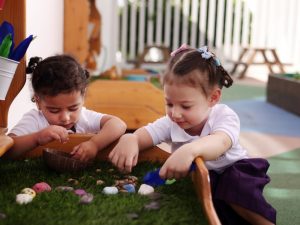 One key focus of future changes in the EYFS framework is enhancing school readiness outcomes. By refining early years education practices, nurseries and preschools aim to better prepare children for their transition into primary school. This includes developing skills like communication, social interaction, and basic numeracy.
One key focus of future changes in the EYFS framework is enhancing school readiness outcomes. By refining early years education practices, nurseries and preschools aim to better prepare children for their transition into primary school. This includes developing skills like communication, social interaction, and basic numeracy.
Focus on enhancing school readiness outcomes:
- Improving school readiness helps children adapt better to formal schooling environments.
- Enhancing these outcomes ensures that children are equipped with essential skills before entering primary school.
Integration of New Technologies
Embracing new technologies for assessment purposes is another significant aspect of future changes in the EYFS framework. Incorporating digital tools can enhance data collection, analysis, and reporting processes within early years settings. For instance, using interactive apps or software programs can provide more accurate insights into a child’s learning journey.
Embracing new technologies for assessment purposes:
- Technology integration can help educators gather real-time data on student progress.
- Digital tools enable more personalized learning experiences tailored to individual needs.
Staff Qualification and Training Requirements
Relevant Qualifications
Staff in EYFS nurseries and preschools must hold qualifications in early childhood education or related fields. These qualifications ensure that staff have the necessary knowledge to support young children’s development effectively. For example, a staff member with a degree in Early Childhood Studies would meet this requirement.
Staff should pursue continuous professional development to keep up-to-date with the latest practices in early years education. This ongoing training helps them enhance their skills and provide high-quality care and education to children. Attending workshops, seminars, or online courses can contribute to their professional growth.
Specialist roles within an early years setting may require additional training beyond basic qualifications. For instance, a speech therapist working in an EYFS nursery would need specialized training to support children with speech and language difficulties effectively. This targeted training ensures that staff can address specific needs within the setting.
Safeguarding Procedures Training
Training on safeguarding procedures is crucial for all staff members working in EYFS settings. Understanding how to recognize signs of abuse or neglect and knowing the appropriate steps to take is essential for ensuring the safety and well-being of children under their care. Regular updates on safeguarding practices are also important.
Specific roles such as designated safeguarding leads may require more comprehensive training on child protection policies and procedures. These individuals play a key role in overseeing safeguarding practices within the setting and acting as points of contact for any concerns raised by staff members or parents.
It is vital for all staff members to be aware of local regulations regarding child protection and safeguarding requirements. By staying informed about these guidelines, EYFS practitioners can create a safe environment where children feel secure and protected while they learn and play.
Specialist Training for Specific Roles
Some positions within EYFS nurseries may demand specialist training based on unique responsibilities associated with those roles. For example, a sensory integration therapist working with children who have sensory processing challenges would need specialized training to implement effective interventions.
By providing targeted training opportunities for staff members holding specific roles, EYFS settings ensure that each child receives individualized support tailored to their needs.
Moreover, offering ongoing professional development enhances job satisfaction among employees by recognizing their expertise through advanced training programs tailored to their respective areas of specialization.
Safeguarding and Welfare in EYFS Settings
Importance of Safeguarding Policies
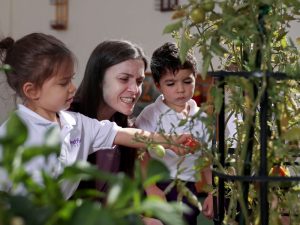 Safeguarding policies are crucial in EYFS nurseries and preschools to ensure the safety and well-being of children. These policies outline procedures to protect children from harm or neglect. Regular risk assessments play a vital role in maintaining a secure environment for children by identifying potential hazards like sharp edges, loose wires, or slippery floors.
Safeguarding policies are crucial in EYFS nurseries and preschools to ensure the safety and well-being of children. These policies outline procedures to protect children from harm or neglect. Regular risk assessments play a vital role in maintaining a secure environment for children by identifying potential hazards like sharp edges, loose wires, or slippery floors.
Safeguarding policies not only focus on physical safety but also address emotional well-being. They provide guidelines on how to create a nurturing atmosphere where every child feels safe, valued, and respected. By promoting positive behavior through rewards and encouragement, EYFS settings can cultivate a supportive environment that fosters healthy social interactions among children.
Adherence to Health and Safety Guidelines
Strict adherence to health and safety guidelines is paramount in EYFS nurseries and preschools to prevent accidents or injuries. Staff members should be trained on emergency procedures like first aid, fire drills, and evacuation protocols. Ensuring that equipment is regularly checked for faults or damage can mitigate risks associated with playground activities.
In addition to physical safety measures, it’s essential for staff members in EYFS settings to be vigilant about signs of potential abuse or neglect. Training programs often include guidance on recognizing indicators of mistreatment so that early intervention can occur if necessary.
Collaboration with Parents for Child Welfare
Collaboration between EYFS settings and parents plays a significant role in ensuring the welfare of children. Open communication channels allow parents to express any concerns they may have regarding their child’s well-being at the setting. Regular updates on the child’s progress help maintain transparency between both parties.
Furthermore, involving parents in activities such as parent-teacher meetings or workshops fosters a sense of community within the setting. This collaboration not only benefits the child by providing consistency between home and school environments but also strengthens the support network available for each child.
Next Steps After Understanding EYFS
Implementing Best Practices
Implement EYFS principles into your daily routines at nurseries and preschools to promote holistic child development. Use activities like painting, storytelling, or outdoor play to cover all areas of learning.
Collaborate with colleagues to share insights on how you are incorporating the EYFS framework. Discuss effective strategies for observation, assessment, and planning that align with the developmental needs of children in your care.
Engage in continuous professional development opportunities related to EYFS guidelines. Attend workshops or training sessions to enhance your understanding and application of best practices within the framework.
Communicating with Parents
Use the EYFS curriculum as a tool to effectively communicate each child’s progress with their parents. Share observations, assessments, and next steps based on their child’s development stage using clear language that parents can easily understand.
Encourage parental involvement by providing suggestions for activities that can be done at home to support their child’s learning journey. Create open channels of communication where parents feel comfortable sharing information about their child’s experiences outside of school.
Organize regular meetings or conferences with parents to discuss progress reports based on EYFS assessments. Seek feedback from parents regarding their observations and experiences at home that can contribute valuable insights into a child’s overall development.
Staying Updated on Changes
Stay informed about any updates or modifications made to the EYFS framework, ensuring that your setting remains compliant with current regulations and standards. Regularly check official sources for announcements regarding changes in assessment criteria or learning goals within the curriculum.
Participate in networking events or online forums where educators discuss recent developments in early years education, including revisions in policies related to the EYFS framework. Engage in conversations with peers to exchange ideas on how these changes can be implemented effectively within different educational settings.
Attend refresher courses or webinars offered by educational institutions focusing on updates within the Early Years Foundation Stage curriculum. Take proactive steps towards adapting new methodologies derived from updated guidelines into your teaching practices.
Closing Thoughts
Understanding the Early Years Foundation Stage is crucial for nurseries and preschools to provide quality education. Compliance with the statutory framework and utilizing essential documents are key for effective implementation. Exploring the areas of learning, conducting assessments, and preparing for future changes are vital steps in enhancing EYFS delivery. Staff qualifications, training, and a focus on safeguarding ensure a safe and nurturing environment for children.
For a successful EYFS program, continuous improvement, staying updated with regulations, and prioritizing children’s holistic development are paramount. Embracing best practices, fostering partnerships with parents, and seeking professional development opportunities will further elevate the quality of early childhood education. Remember, every effort made in understanding and implementing EYFS contributes to shaping a brighter future for our young learners.
Frequently Asked Questions
What is the purpose of the Early Years Foundation Stage (EYFS) framework?
The EYFS framework sets standards for the learning, development, and care of children from birth to five years old. It aims to ensure all children have a secure foundation for future progress.
How does the EYFS framework benefit nurseries and preschools in the UAE?
Implementing the EYFS framework helps nurseries and preschools in the UAE provide high-quality education that supports children’s holistic development. It offers a structured approach to early childhood education based on best practices.
What are some key areas covered by the statutory framework of EYFS for England?
The statutory framework of EYFS for England covers seven areas of learning and development: communication and language, physical development, personal, social and emotional development, literacy, mathematics, understanding the world, expressive arts and design.
Why are assessments important in an Early Years setting following the EYFS guidelines?
Assessments play a crucial role in tracking each child’s progress against expected outcomes. They help identify strengths and areas needing support while informing planning to meet individual needs effectively within an Early Years setting.
How do staff qualification requirements contribute to quality provision under EYFS guidelines?
Staff with appropriate qualifications ensure that children receive high-quality care and education. Meeting qualification requirements demonstrates knowledge of child development principles necessary for implementing effective teaching strategies aligned with EYFS goals.
